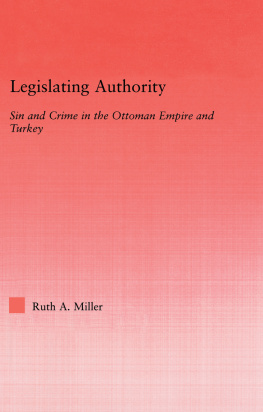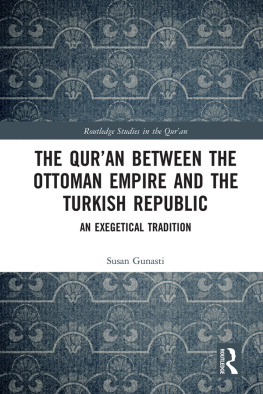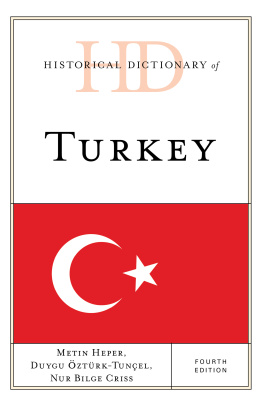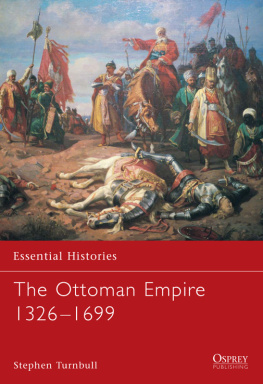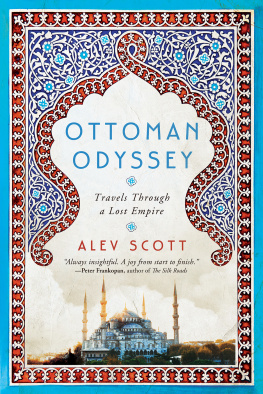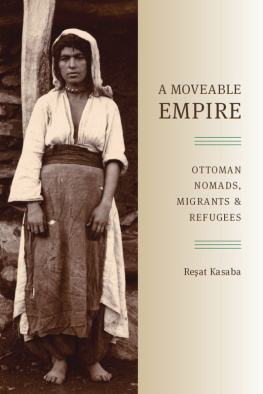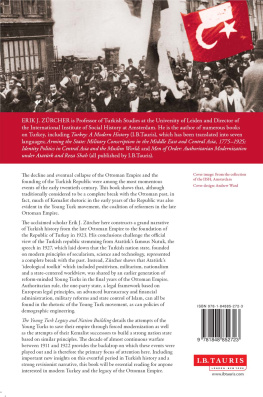Saraçoğlu M. Safa - Law and Legality in the Ottoman Empire and Republic of Turkey
Here you can read online Saraçoğlu M. Safa - Law and Legality in the Ottoman Empire and Republic of Turkey full text of the book (entire story) in english for free. Download pdf and epub, get meaning, cover and reviews about this ebook. City: Osmanisches Reich;Türkei;Turkey, year: 2016, publisher: Indiana University Press, genre: Politics. Description of the work, (preface) as well as reviews are available. Best literature library LitArk.com created for fans of good reading and offers a wide selection of genres:
Romance novel
Science fiction
Adventure
Detective
Science
History
Home and family
Prose
Art
Politics
Computer
Non-fiction
Religion
Business
Children
Humor
Choose a favorite category and find really read worthwhile books. Enjoy immersion in the world of imagination, feel the emotions of the characters or learn something new for yourself, make an fascinating discovery.

- Book:Law and Legality in the Ottoman Empire and Republic of Turkey
- Author:
- Publisher:Indiana University Press
- Genre:
- Year:2016
- City:Osmanisches Reich;Türkei;Turkey
- Rating:5 / 5
- Favourites:Add to favourites
- Your mark:
- 100
- 1
- 2
- 3
- 4
- 5
Law and Legality in the Ottoman Empire and Republic of Turkey: summary, description and annotation
We offer to read an annotation, description, summary or preface (depends on what the author of the book "Law and Legality in the Ottoman Empire and Republic of Turkey" wrote himself). If you haven't found the necessary information about the book — write in the comments, we will try to find it.
Law and Legality in the Ottoman Empire and Republic of Turkey — read online for free the complete book (whole text) full work
Below is the text of the book, divided by pages. System saving the place of the last page read, allows you to conveniently read the book "Law and Legality in the Ottoman Empire and Republic of Turkey" online for free, without having to search again every time where you left off. Put a bookmark, and you can go to the page where you finished reading at any time.
Font size:
Interval:
Bookmark:
LAW AND LEGALITY
IN THE OTTOMAN EMPIRE
AND REPUBLIC OF TURKEY
IN THE OTTOMAN EMPIRE
AND REPUBLIC OF TURKEY
Edited by Kent F. Schull,
M. Safa Saraolu,
and Robert Zens

This book is a publication of
Indiana University Press
Office of Scholarly Publishing
Herman B Wells Library 350
1320 East 10th Street
Bloomington, Indiana 47405 USA
iupress.indiana.edu
2016 by Indiana University Press
All rights reserved
No part of this book may be reproduced or utilized in any form or by any means, electronic or mechanical, including photocopying and recording, or by any information storage and retrieval system, without permission in writing from the publisher. The Association of American University Presses Resolution on Permissions constitutes the only exception to this prohibition.
The paper used in this publication meets the minimum requirements of the American National Standard for Information SciencesPermanence of Paper for Printed Library Materials, ANSI Z39.481992.
Manufactured in the United States of America
DOI: 10.2979/lawandlegality.0.0.01
Library of Congress Cataloging-in-Publication Data
Names: Schull, Kent F., editor. | Saracoglu, M. Safa., editor. | Zens, Robert W., editor.
Title: Law and legality in the Ottoman Empire and Republic of Turkey / Edited by Kent F. Schull, M. Safa Saracoglu, and Robert Zens.
Description: Bloomington : Indiana University Press, 2016. | Includes index.
Identifiers: LCCN 2015037652 | ISBN 9780253020925 (pbk. : alk. paper) | ISBN 9780253021007 (electronic)
Subjects: LCSH: LawTurkeyHistory. | TurkeyHistoryOttoman Empire, 12881918.
Classification: LCC KKX120 .L39 2016 | DDC 349.56dc23
LC record available at http://lccn.loc.gov/2015037652
1 2 3 4 5 21 20 19 18 17 16
Kent F. Schull & M. Safa Saraolu
Timothy J. Fitzgerald
Hadi Hosainy
Michael Nizri
M. Safa Saraolu
Kenneth M. Cuno
Nora Barakat
Samy Ayoub
Kent F. Schull
Ellinor Morack
LAW AND LEGALITY
IN THE OTTOMAN EMPIRE
AND REPUBLIC OF TURKEY
Kent F. Schull & M. Safa Saraolu
THIS EDITED VOLUME is an expansion of the Journal of the Ottoman and Turkish Studies Associations Spring 2015 issue Law and Legality in the Ottoman Empire and Republic of Turkey edited by Kent F. Schull (Binghamton University, SUNY), M. Safa Saraolu (Bloomsburg University), and Robert Zens (Le Moyne College). It represents the wide range of excellent work being done in the field of Ottoman and Turkish socio-legal history. This volume includes a number of articles that were initially presented as part of a four-panel session at the 2013 annual conference of the Middle East Studies Association (MESA) entitled, Law, Legality, and Legitimacy in the Ottoman Empire. The embedded workshop focused on the complex relationship between law, legality, and legitimacy with the particular goal of understanding the transformation of how law was legitimized over the course of Ottoman history. Twenty-five presenters and discussants participated in the four panels containing topics related to socio-legal history throughout the empires existence.
Part of the pretext of the workshop was to view law as representing a formal, institutional normative order. The formalization of law is a political and cultural process that requires different groups negotiating how to articulate a formal version of existing norms. This view also adapts David Garlands multidimensional interpretative approach, which sees punishment as an over determined, multifaceted social institution to law, legality, and legitimization.
Due to its political nature, law-making requires justification, which comes in the form of legitimacy. Legitimacy, in this context, emerges as a political concept dealing with a particular political/moral question: What gives this (or any) particular law-maker the right to demand what one should obey? The chain of relationship between law, legality, and legitimacy has taken a particular form for several post-enlightenment thinkers. Legality, as something that can be proven through rules of reason, became the basis for legitimacy.
There are at least two factors contributing to the Weberian misperception of the relationship between law, legality, and legitimacy in the Ottoman Empire: it fails to understand the normative consistency in the Ottoman legal system, and it assumes that the peculiar nature of the historical relationship between intellectuals, the religious establishment, and sovereign authority in the Western world is universal. We believe that questioning how law was legitimized in the Ottoman Empire over the long-run can help avoid this misperception and understand the legal transformation of the empire from the perspective of Islamic law and practice, that is why we invited fellow scholars to discuss the peculiar relationship between laws, legality, and legitimacy in the Ottoman Empire.
We hope that this volume will add to the expanding field of Ottoman socio-legal studies. The reception of law by members of society, its utility and application at the local level are key components of its legitimation. Legal practice in the Ottoman Empires Sharia and Nizamiye courts has received increasingly more attention in the past two decades. In 2008, Iris Agmon and Ido Shahar edited a special issue of Islamic Law and Society on the shifting perspectives in the study of Sharia courts. In their introduction, they noted how these courts received very limited attention prior to the 1990sthe journal, as the editors noted, began its life in 1994 as a testimony to this increasing momentum.
In 2011, Avi Rubin noted a similar lacuna on works related to the nineteenth-century Nizamiye courts. Up until very recently our understanding of how these courts functioned was very limited, because of the few records that survive from these courts. While this understanding has somewhat improved thanks to an increasing number of scholars exploring the nineteenth-century provincial judicio-administrative sphere, for the most part, their provincial operations remain a mystery. Proliferating works on the application of law, some included in this volume, point out the complexity of the relationship between legal practices and political economy in the Ottoman provinces. A more nuanced understanding of the complex sets of relations among social actors reveals that it is impossible to think of applied law apart from its social, political, cultural, and economic context.
did not necessarily imply a moving away from fiqh or reducing the influence of Sharia courts in the nineteenth century, but the standardization, centralization, and rationalization of law, legality, and legitimization within the hands of the central state at an unprecedented level.
This edited volume consists of nine scholarly articles that represent the field of socio-legal history for Ottoman and Turkish studies. Six of the articles originate from the embedded MESA workshop. The other three were added later through invitation and at large submissions to the Journal of the Ottoman and Turkish Studies Association. While the majority of the articles deal with the late Ottoman Empire and the early Turkish Republic (six out of the nine), three deal with socio-legal issues ranging from the sixteenth through eighteenth centuries. The articles are arranged chronologically in order to demonstrate the sweep and variety of socio-legal projects being carried out in Ottoman and Turkish Studies that intersect issues of property, gender, legal literacy, the demarcation of village boundaries, the codification of Islamic law, economic liberalism, crime and punishment, and refugee rights across the empire and the Aegean region of the Turkish Republic. At the heart of each of these articles is the complicated relationship between law, legality, and legitimization.
Next pageFont size:
Interval:
Bookmark:
Similar books «Law and Legality in the Ottoman Empire and Republic of Turkey»
Look at similar books to Law and Legality in the Ottoman Empire and Republic of Turkey. We have selected literature similar in name and meaning in the hope of providing readers with more options to find new, interesting, not yet read works.
Discussion, reviews of the book Law and Legality in the Ottoman Empire and Republic of Turkey and just readers' own opinions. Leave your comments, write what you think about the work, its meaning or the main characters. Specify what exactly you liked and what you didn't like, and why you think so.

